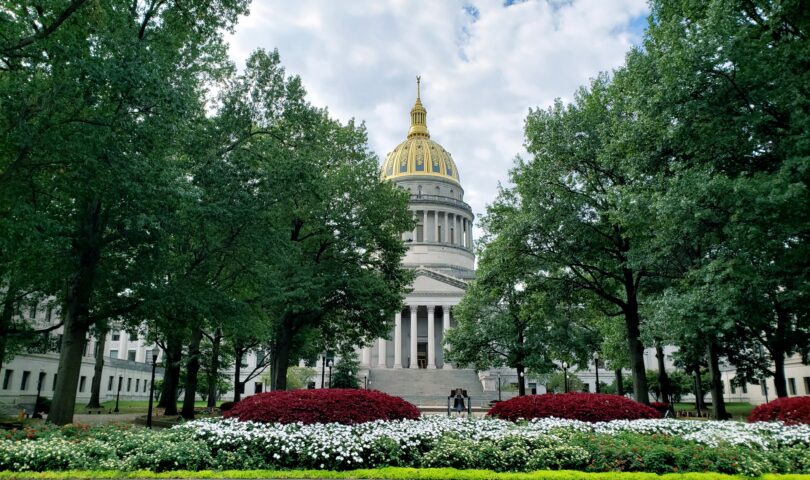MORGANTOWN — Senate Finance sent President Craig Blair’s mining mutual insurance company bill to the Senate floor Thursday morning, along with the bill dealing with bank boycotts of fossil fuel companies.
SB 1 is the mining mutual bill. It explains that the state funds reclamation at abandoned mines through a combination of bond proceeds and money from the Special Reclamation Fund under the Surface Mining Control Reclamation Act.
The bill creates the mining mutual as a domestic, private corporation, in the same manner the Physicians Mutual in 2003 and BrickStreet in 2005 — for Workers’ Compensation — were previously created. Because it will not be a state entity, all premiums collected are subject to taxation. Participation will be voluntary.
A special revenue account will be created under the Department of Environmental Protection called the Mining Mutual Insurance Company Fund and be initially supplied with $50 million — the source of that money to be determined, but not from the Special Reclamation Fund.
Blair, R-Berkeley, appeared to explain how he developed the bill. An audit report from November, he said, indicated that the state could be exposed for as much as $8 billion, though he believes the figure may be $2 billion to $4 billion, for reclamation bonds.
One company does 60% of all the bonding for mines across the country and if it failed in another state, “We’ve got a problem in the state of West Virginia,” he said. It could shut down coal production.
So he worked with the coal industry to craft the bill, he said. “My confidence in this bill is so strong,” he took the unusual step of sponsoring it. Where BRIM and the Physicians Mutual were both responses to the state facing financial crises, this is meant to be proactive.
David Rader, who helped the state create the Physicians Mutual and BrickStreet, agreed to come out of retirement to help with the mining mutual. “I believe in West Virginia,” Rader told the members.
He agreed with suggestions that $50 million isn’t much compared to the potential exposure, but he worked with the Insurance Commission on this, and $50 million gets the company started.
It passed unanimously in a voice vote.
Boycott bill
SB 262 is the boycott bill, sent to Finance from Senate Energy. It allows the state treasurer to put financial institutions that openly boycott fossil energy companies on a publicly available Restricted Financial Institution List, and refuse to enter into a banking contract with that institution.
Finance amended it to exclude deposits by the state Investment Management Board.
Treasurer Riley Moore appeared and offered the same explanation he gave to Energy about the purpose of the bill. Some major national lenders openly state they won’t lend to fossil-fuel companies. Industry in West Virginia aired its concerns to him. “They’re scared to death they’re going to lose access to capital.”
Those banks’ policies, he said, pose a clear conflict of interest. Coal and gas companies generate tax revenue, so why give banks with hostile attitudes toward West Virginia industries West Virginia tax dollars?
His office has deposits in 30 banks, he said, and the bill might affect two.
Asked if this bill is based on an ALEC model, he said no — he’s been working on this for months, and maybe ALEC picked up on it.
Sen. Owens Brown, D-Ohio, asked Moore if this bill is a means of stifling competition and taking sides in private business. Moore said no, he’s taking the side of West Virginia and just stating his department’s preference of who it will enter into contracts with.
Eli Baumwell, West Virginia ACLU advocacy director, opposed the bill, saying court rulings on similar measures, including anti-BDS laws, which oppose boycotts, divestments, and sanctions against Israel.
Baumwell said that financial institution boycotts of fossil-fuel companies are considered protected political free speech intended to effect change, and this bill could be ruled unconstitutional if challenged.
This bill also passed in a voice vote, with no audible votes against.
TWEET @DominionPostWV




